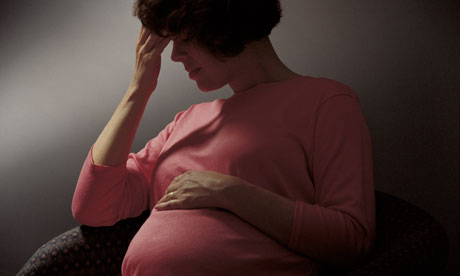
The Guardian recently covered an investigation that my organisation Education For Choice carried out of pregnancy counselling. Listening to the mixed responses of organisations we investigated brought to mind an event early in my time at Education For Choice.
New to my job and with fire in my belly about women's reproductive rights, I joined a panel as the pro-choice representative debating with an anti-abortion speaker at a 6th form religious education conference. I was prepared for a heated exchange. My opposite number was not a representative of any organisation or campaigning body; he was a dedicated Catholic who believed that abortion was fundamentally wrong. He was also a practising psychiatrist and had taken every opportunity to use his professional skills to support adoption as an alternative to abortion. He spoke about what a profound experience adoption was for all parties. He wanted to improve the experience of adoption, to act on his belief that it was the better option.
Far from the polemical and antagonistic exchange I had anticipated, our discussion was calm and respectful. We agreed on many points: though the bottom line was that he thought abortion was wrong and I didn't. At the end of our discussion we took questions from the audience. The final question was more of an outburst. It came from a secretary for the school office. She demanded: "Why are you just sitting there acting as if abortion is OK? Why don't you tell the truth about how they do abortions?" She went on to give a graphic and inaccurate description of an abortion procedure, worthy of the most gruesome American anti-abortion website. Interestingly, her angry intervention was not aimed at me, but my co-panellist. Sometimes those who are against abortion, but don't resort to shock tactics or misinformation to make their point, can get flack from their supposed comrades.
I cannot quote directly from the response my co-panellist gave as it was nearly 10 years ago now, but here is the essence of his answer: as a doctor and someone who had dedicated his professional life to healing people, he believed that telling women who had chosen abortion horror stories was stigmatising and damaging. He believed it would not change their minds or stop them accessing abortions, but would simply fill them with shame and could leave them feeling guilty, compromising their emotional health and wellbeing. Although he did not believe abortion was the right solution, he believed we should be supportive and compassionate towards women who made that choice.
Thinking about a role that those who oppose abortion could play made me reflect back on that discussion. There are so many valuable things we can do for those who are frightened, isolated and threatened because they find themselves pregnant with no support. There are women who know they want to continue their pregnancy, but don't know how they would cope, where they could live, how they could buy the basics, how they could get away from violent partners or families, how to get help with addiction and more. As statutory services and benefits that provide a safety net for these women fall away there will – whether we like it or not – be a growing role for voluntary sector services to step in. What an opportunity to support women who choose to continue with pregnancies apparently against all the odds.
Already at least one of the organisations that currently runs crisis pregnancy centres – which is advising women on pregnancy options – does some of this. The question many people ask is why don't they devote all their resources to this work? Why get involved in advising/counselling women on their pregnancy options, if they don't, in all conscience, believe that the option of abortion is valid or acceptable?
Pregnancy decision-making support should be provided by professionals who genuinely believe that all pregnancy options are morally valid, are committed to providing evidence-based information and are willing to facilitate early access to abortion or antenatal care, depending on the woman's decision. Those who are opposed to abortion could learn from the psychiatrist I met and act with the same integrity, committing their time and resources to supporting women who have already made a decision and really need their help, instead of getting involved in a woman's decision-making process in the hope that, by foul means or fair, she will make the "right" decision.

